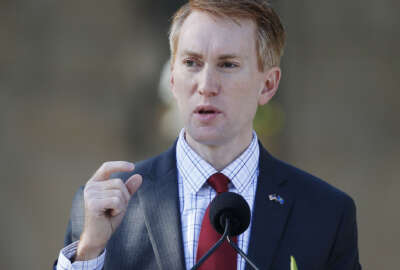We know you’re busy, so here’s your cheat sheet to the stories that Federal News Radio readers are talking about this week on our Facebook page, on Twitter and here on our website. Catch up and add your voice to the conversation.
The big debate over your retirement savings:
The announcement that there would be no cost-of-living bump in federal retirees’ benefits exposed a generational rift. It’s only the third time in 40 years that retirees will see no increase in their benefits. That makes the expected federal pay raise of 1 percent to 1.3 percent look good in comparison.
Not everyone sees it like that.
“While I understand retirees’ frustration, federal retirees actually have had a higher COLA over the last 6 years than non-retired federal workers. Under Obama, we had 3 years of FLAT, 0 percent COLA (technically across the board) increase. Then, we received a generous increase of 1 percent each for 2014 and 2015. For 2016, we will have a potential landslide increase of 1.3 percent or so. My agency saw a number of people retire because their regular salaries were staying flat. Some of them retired, took off a few months, and then came back as reemployed annuitants and really cleaned up. But that’s another story,” wrote j richards in response to Mike Causey’s recent column on the un-COLA.
Meanwhile, the Treasury Department on Oct. 30 will take a break from investing in the G Fund unless Congress raises the debt ceiling. The G Fund is the most popular of the Thrift Savings Plan’s options. As you may imagine, feds are none too pleased with this prospect.
“Congress’ pay should be withheld until they do their danged jobs,” wrote Daphney Waggoner on our Facebook page.
Yet Congress isn’t totally ignoring federal employees’ financial needs. The Senate has passed a bill that would make it illegal for those who collect federal retirement payments on behalf of others (say a caretaker to a disabled former fed) to misuse that money. No embezzlement or fishy conversions to that cash.
“That, hopefully, will create a barrier that someone will think twice before they try and defraud a federal employee in retirement,” Sen. James Lankford (R-Okla.), the head of the Senate Homeland Security and Governmental Affairs subcommittee on Regulatory Affairs and Federal Management, told Federal News Radio.
“What benefits? The article doesn’t mention actual money for fraud protection only to protect federal workers against fraud. It’s just anti-fraud legislation, which sounds about as effective as The Do-Not-Call List. This is just lip-service, no money devoted to enforcement so the taxpayer doesn’t have to worry,” wrote chicagoman R.A. in response to our story.
Things that make you go hmm
The Homeland Security Department is making it harder for visitors to enter federal buildings. Starting this month, visitors are supposed to show identification from states that abide by the federal REAL ID standards. New York, Minnesota, Louisiana and American Samoa are the only places in the country that have neither adopted the standards nor gotten an extension from the feds.
“I’m surprised about NY. Populous area with a large federal presence. What happens if the 3 months pass and they still have not fixed it? If an engineer from NY needs to come on a federal facility will they be barred from entry? Will a federal employee have to come vouch for them?” said will4567 in response to Federal News Radio’s story.
Other readers commented on the lengthy list of states that are not in compliance with the law, but have received extensions.
“More extensions DHS? Just ban them on October 10th so the litigation can get started. Lawyers need a cash for clunkers program,” wrote Mike W.
It’s worth reading the details of this story. DHS is giving those four states and territories a grace period. Also, it’s requiring visitors to federal buildings to have IDs issued by compliant states. But you don’t need a REAL ID card until 2020.
The 3 other federal stories you really shouldn’t have missed:
1. President Barack Obama vetoed the National Defense Authorization Act over what he called “an irresponsible budget gimmick.” The bill would draw on war funds to pay for other military expenses. A 1.3 percent pay raise for service members, a new twist to their retirement plans and acquisition reform are tied up in the legislation.
2. The Seniors Deserve a Raise Act would give federal beneficiaries a 2.9 percent COLA increase, regardless of what the Social Security Administration says. The bill, introduced by House Democrats, now sits in presumed-Speaker-to-be Paul Ryan’s Ways and Means Committee.
3. Agencies in rural North Dakota have struggled to keep federal workers during the region’s oil and gas boom. Their experiences hold lessons for the rest of government as the nation’s economy improves.
Copyright
© 2024 Federal News Network. All rights reserved. This website is not intended for users located within the European Economic Area.



